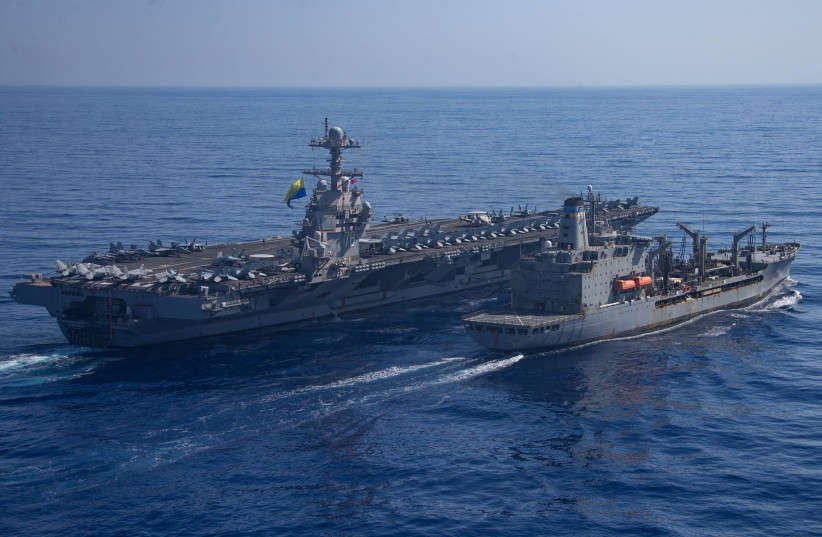US Secretary of State Antony Blinken’s scheduled visit to Israel this week – his fifth since the October 7 massacre, excluding a visit accompanying President Joe Biden here soon after the Hamas attack – highlights how critically important Washington views what is going on here.
From the outset, one of Washington’s top concerns – and one of the reasons for an unprecedented degree of US involvement in Israel’s decision-making process during this war – was that the conflict would remain constrained to Gaza and not engulf the entire region.
Bigger picture
A wider regional war seems to have been one of Hamas’s purposes, knowing full well that this heinous attack would provoke an overwhelming Israeli response.
Not only was the knowledge that Israel would respond with devastating force not a deterrent for Hamas, it may even have been an inducement.
From Hamas’s viewpoint, a major regional war would knock any expansion of the Abraham Accords to Saudi Arabia off the agenda, send the pre-October 7 warming of Israeli-Turkish ties into deep freeze, and render unrealistic an ambitious plan Biden presented to create a railway and sea corridor connecting India and Saudi Arabia to Europe via Jordan and Israel.
It was in an effort to prevent just such a major regional war that Biden, in a speech three days after the attack, warned Hezbollah and anyone else not to take advantage of this situation and strike Israel. “I have one word,” he said memorably: “Don’t.”

To back this up, he sent two aircraft carrier strike groups to the region, one which will reportedly be leaving soon, as well as nuclear-powered submarines. That high-profile projection of force signaled to Hezbollah and Iran that Biden was dead serious about “don’t.”
And it worked. Although Hezbollah has continuously fired into Israel, leading to the evacuation of tens of thousands of people from their homes, it has kept the fighting on a low burner. Israel’s military might is the prime reason Hezbollah has not yet escalated this to a full-fledged war, but America’s military presence in the eastern Mediterranean also helped.
Blinken's current goals
One of Blinken’s objectives is to keep the situation in the North on a low burner, an objective made more tricky following last week’s assassination of Hamas’s No. 2 Saleh al-Arouri and Hezbollah’s promise of revenge.
While Blinken’s previous trips to Israel after October 7 focused largely on Gaza and US interests in scaling back the intensity of the war and getting humanitarian aid to Gazans, this trip is also expected to deal equally with the situation in the North.
There is little disagreement on either front between the two countries regarding long-term objectives.
The US shares Israel’s position that the Lebanese Army needs to replace Hezbollah in southern Lebanon. And regarding Gaza, there is no daylight between Washington and Jerusalem about the need to degrade Hamas’s military capabilities and remove Hamas from power. The differences surround how much firepower is needed to do that, and who will take over “the day after.”
Israel must continue to calibrate its steps in this war carefully. It needs to execute the war in a way that furthers its national interests, while giving due consideration to the concerns and interests of its greatest ally.
But both the US and Israel understand what it would mean if Hamas were left standing after the war, and how this would embolden Islamists in the region.
This would be devastating for Israel and send a dangerous signal of vulnerability to its enemies. Those enemies, however, are not only watching Israel’s performance in the war but also the US and the degree to which it supports one of its closest allies.
All eyes on the US
The last 15 years, which saw the US draw down forces in Iraq and Syria, withdraw completely from Afghanistan, and not respond forcefully when the Houthis struck strategic Saudi Arabian assets, have left regional actors wondering whether they could count on US support.
The degree to which the US stands by Israel will give an indication to these actors about whether they are better off leaning on the US or, perhaps, others – China, Russia or Iran – for their security.
For three months, America has admirably stood by Israel, even at the risk of a domestic political price for Biden. This is obviously tremendously important for Israel; it also boosts America’s reputation globally as a reliable ally.
